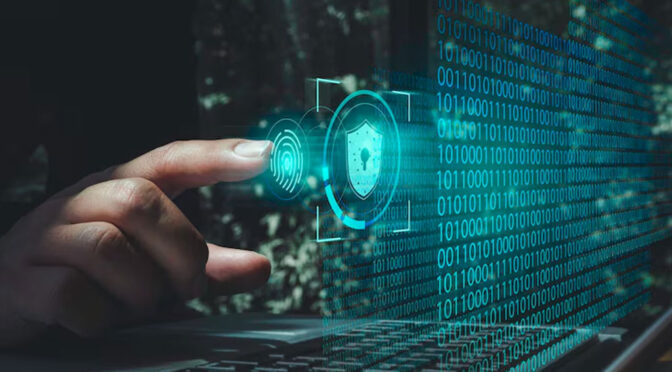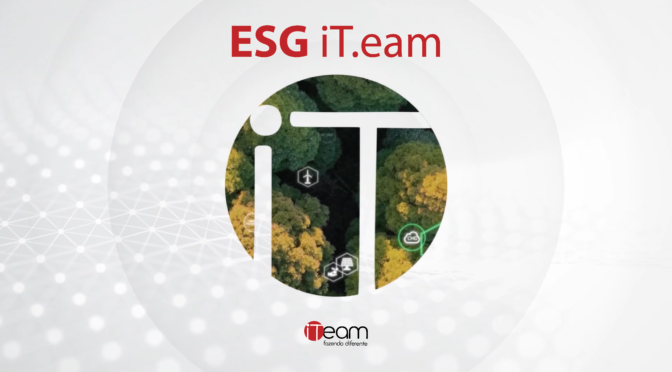The last few years have been marked by an increase in cyber attacks. All over the world, weak information security policies have made way for threats such as ransomware to cause damage ranging from data loss to the unavailability of critical services.
In view of this, system prevention and monitoring have gained momentum as the main measures that can be adopted to protect against intrusions. But for these to work, the company must mobilize an IT team prepared to draw up plans, regularly monitor processes and provide guidance to users on how to make the best use of the internet and equipment.
The team must also work to define security policies used to maintain information security and reduce the number of attacks that manage to penetrate the environment. If you want to know how this happens, read on!
What are information security policies?
They refer to a set of rules containing the principles and guidelines adopted by the organization to protect its systems from threats. They must be followed by all employees, customers and suppliers (as well as the organization's own IT) to ensure that no vulnerabilities arise from user actions.
It can be said that by implementing a security policy, the likelihood of breaches of confidentiality, availability and integrity of information is significantly reduced. After all, this policy provides the business with a robust set of strategies to prevent, identify and eliminate attacks quickly, before they become a source of loss of profit and system availability for the company.
How does it help the business to have a more reliable infrastructure?
Information security is gaining more and more importance and space in organizations, regardless of their size, segment or market position. Both because of legal obligations and because of user demands. And this means that businesses that don't invest in the area lose sales.
The implementation of information security policies allows organizations to effectively manage and protect all information considered critical. This is done by selecting and implementing security controls. It is therefore a way of keeping strategic data away from leaks.
The security policy also promotes the standardization of actions, so that everyone knows what to do and what to avoid. All teams act through a set of shared rules, which avoids risky situations and problems that can be caused by inconsistent digital security processes.
Information security policies also allow companies to keep up with their legal obligations. Laws such as the LGPD and GDPR oblige businesses operating in Brazil and the European Union to be more careful with their consumers' data, which increases the transparency of their information security policies. Adapting to these laws with a more robust digital security policy therefore makes the company more competitive.
How to create intelligent information security policies?
Responsibility for the efficiency of information security policies is shared by all professionals. However, the drafting and implementation processes should be restricted to specific teams with a high level of knowledge of the main market standards. This will give much more scope to the practices adopted.
Define teams to draw up, implement and maintain the information security policy
Responsibility for the efficiency of information security policies is shared by all professionals. However, the drafting and implementation processes should be restricted to specific teams with a high level of knowledge of the main market standards. This will give much more scope to the practices adopted.
Adopt technologies and good practices against attacks
Implement encryption, monitoring, firewall and access control mechanisms. This will reduce existing problems, give teams more capacity to find errors and prevent loopholes from being used. Also adopt good practices, such as access control rules, data backup and agile system updates.
Get the IT team to work side by side with other areas
IT teams should work with all sectors. This helps the company to have policies that don't negatively impact workflows, improves the quality of security processes and helps the company to be more committed to applying protection measures.
Maintain standards for all sectors
Data security standards must apply to all sectors. Therefore, carry out extensive training and engage the teams in each area to maintain an efficient and reliable routine. This way, the company will be able to reduce the number of potential problems as much as possible.
Make recovery, contingency and continuity plans
The recovery policy lists all the steps to recover operations as soon as a problem occurs. Together with the contingency and continuity plans, the company will have a set of practices that reduce the impact of a problem on the business routine, help professionals to remain active while the infrastructure is restored and prevent any data from being lost after the failure is detected.
For it to work effectively, the information security policy must be simple, truthful, understandable (written clearly and concisely) and aligned with the company's business strategies. With these measures, the main vulnerabilities will be quickly identified and the organization will be better able to keep its devices secure.
As we have seen, digital security has gained a great deal of prominence in the corporate environment. Today, companies from all sectors (public and private) must focus their actions on user privacy and their ability to protect themselves against attacks.
If well executed, the processes listed in the information security policies will put the company ahead of the competition. All your routines will be structured on the basis of modern and efficient protection mechanisms. In this way, attacks are unlikely to occur.
Did you like our tip? Then follow us on LinkedIn, Twitter and Facebook and stay up to date with future blog news!
Leave a comment
See also:
iT.eam Copyright 2024 - Todos os direitos reservados.
Acesse nossa Política de Segurança da Informação. | Acesse nossa Política de Privacidade da Informação. | Acesse nossa Política Antissuborno e Anticorrupção. | Canal de Ética







